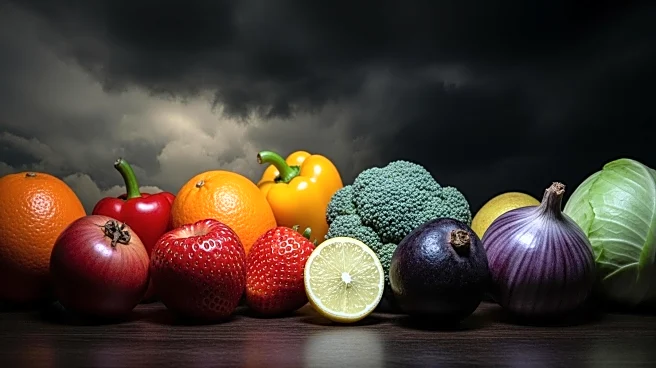What's Happening?
The Energy & Climate Intelligence Unit (ECIU) has released an analysis showing that food prices affected by extreme weather are rising significantly faster than other items. Butter, beef, milk, coffee,
and chocolate have seen an average price increase of 15.6% over the past year, compared to 2.8% for other foods. These items, although comprising only 11% of the average shopping basket, account for nearly 40% of food price inflation. The Bank of England warns that extreme weather is increasingly influencing prices, complicating efforts to control inflation.
Why It's Important?
The rapid increase in food prices due to climate impacts poses a significant challenge for consumers and policymakers. As extreme weather events become more frequent, the cost of essential food items is likely to continue rising, affecting household budgets and food security. The findings highlight the need for climate adaptation strategies in agriculture and supply chains to mitigate these impacts. The situation underscores the importance of achieving net-zero emissions to stabilize the climate and prevent further price volatility.
What's Next?
Governments and stakeholders must prioritize building resilience in farming and supply chains to buffer against climate shocks. The report calls for increased investment in sustainable agriculture and climate adaptation measures. As climate impacts deepen, the UK may need to reassess its food security strategies and explore ways to reduce dependency on imports from climate-vulnerable regions.
Beyond the Headlines
The analysis reveals systemic risks to the food system that central banks cannot control through monetary policy alone. The disproportionate impact on developing nations and the potential for geopolitical instability due to climate-induced food price increases highlight ethical and strategic concerns. The report emphasizes the need for global cooperation to address these challenges and support vulnerable regions.











